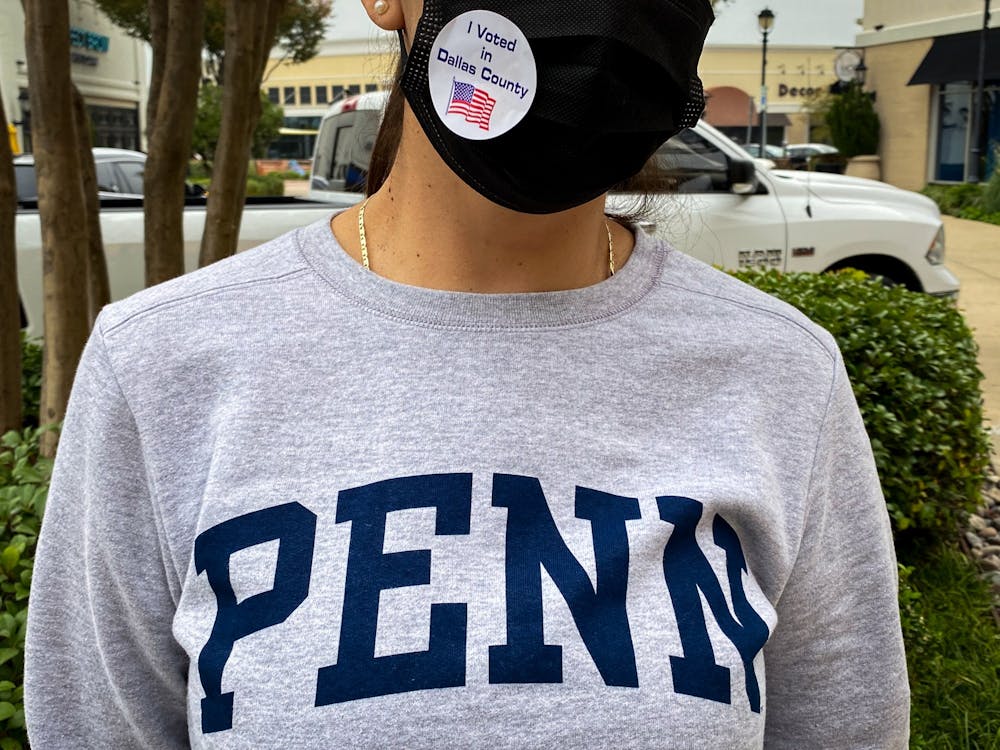
Counseling and Psychological Services recommends focusing on the present moment over trying to predict a number of election outcomes.
Credit: Andrea MendozaWith Election Day, widely seen as the most consequential election in the United States' history, less than one week away, stress and anxiety related to politics is rampant across the country. In a recent survey, 68% of Americans reported that the election as a significant source of stress.
As a result, Penn's Counseling and Psychological Services has created a number of resources to help students cope with situational stress and anxiety, especially relating to the election. CAPS has created a flier with advice on how to cope with election stress and is preparing to respond to specific student needs over the coming weeks on matters pertaining to the election.
The Daily Pennsylvanian spoke with CAPS Associate Director for Outreach and Prevention Batsirai Bvunzawabaya and Senior Clinical Director Michal Saraf about what students can do in the coming weeks to reduce stress and anxiety related to the election – namely stay in the present, check in with friends, and get off the computer.
Here are three suggestions on how to cope with election-related stress.
1. Focus on the present as much as possible.
Bvunzawabaya said that while it is easy to plan for different outcomes in an effort to feel better prepared to cope with them, she urges students to focus on the present moment and prioritize that over trying to predict a number of different outcomes.
"One of the things that can be tricky is that we are all preparing for different or multiple outcomes. And because of that, we won't know how we feel until we actually do see what happens, whenever that is," Bvunzawabaya said.
Given that the winner of the election will likely not be announced on Nov. 3 or even early in the morning on Nov. 4 — as many states have policies related to mail-in balloting that will slow the processing of results — focusing on the present in the week leading up to Election Day is especially important, Bvunzawabaya said.
"Anxiety thrives on what could happen in the future. Whether it be a fear or a feeling over being overwhelmed, it can in some ways make us lose focus on what could happen right now," she said. "In some ways, focusing on the present can help us meet our present needs."
2. Connect with friends, clubs, and groups.
Bvunzawabaya and Saraf emphasized the importance of connecting with friends, as well as groups and clubs, as sources of support relating to the election over the next week.
Bvunzawabaya said CAPS is prepared to host or co-host debrief groups in conjunction with clubs and student groups on campus upon request. She said CAPS is working to be able to meet with student groups even if leaders make requests the morning of or day before.
3. Detach from screens whenever possible.
Taking time away from news sites and channels to focus on things that bring students a sense of peace or calmness is one of the biggest ways to reduce anxiety and stress, Saraf said.
"A lot of times we get caught up in the various scenarios from news networks because we do want that sense of control," Saraf said. "But taking the time to unplug and changing your relationship with the screen can be a way to achieve a sense of wellbeing in the moment given all the uncertainty."
The Daily Pennsylvanian is an independent, student-run newspaper. Please consider making a donation to support the coverage that shapes the University. Your generosity ensures a future of strong journalism at Penn.
Donate



